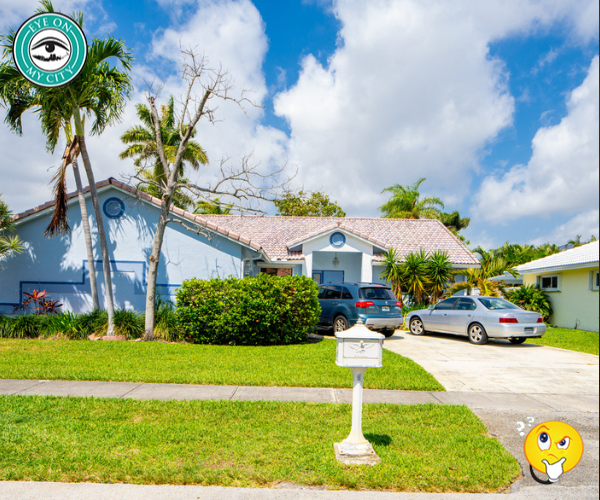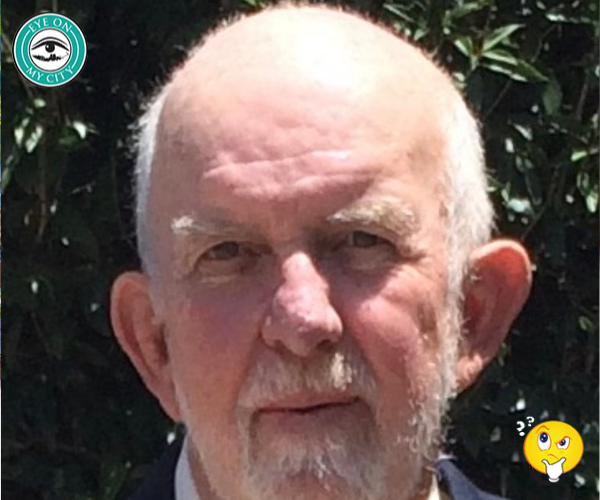It is now illegal to sleep outside in Jacksonville. No worries. Mayor Donna Deegan has a plan.
And it’s expensive. $10 million from the taxpayer plus $3 million from the private sector and homelessness is solved within 5 years.
During a press conference last summer, Deegan said the overall goal of her “exceptional” 12-point plan is to achieve something called “functional zero homelessness (FZH).”
I will give you three guesses what the motivation/ideology behind “functional zero homelessness” is, and the first two don’t count.
Spoiler alert: It’s racism.
A nonprofit called Community Solutions came up with the FZH theory. The group explains functional zero as a “milestone, which must be sustained.” If the milestone is reached, homelessness has been “measurably solved” becoming “rare and brief.”
FZH is achieved when “the number of people experiencing homelessness at any time does not exceed the community’s proven record of housing at least that many people in a month.” Meaning, the same number of people are exiting the homeless system as entering it.
They are still technically homeless, just indoors.
Last year, Deegan’s affordable housing guy went to a fancy conference in Washington, D.C., to learn about Community Solutions’ Built for Zero campaign. Fun fact: Joshua Hicks is married to Phillip Perry who serves as Deegan’s chief communications officer.
I didn’t have to attend a taxpayer funded conference in D.C. to figure out, functional zero homelessness is nothing more than an expensive data collection scheme. It allows politicians/nonprofits to say no one is sleeping outside, therefore no one is homeless. It is a deceitful numbers game relying on the same system we already know caused some trouble for Councilwoman Ju’Coby Pittman’s nonprofit the Clara White Mission — allegedly, of course. LINK: https://eyeonjacksonville.com/corruption-collusion-the-cba-what-the-lerp-is-going-on/
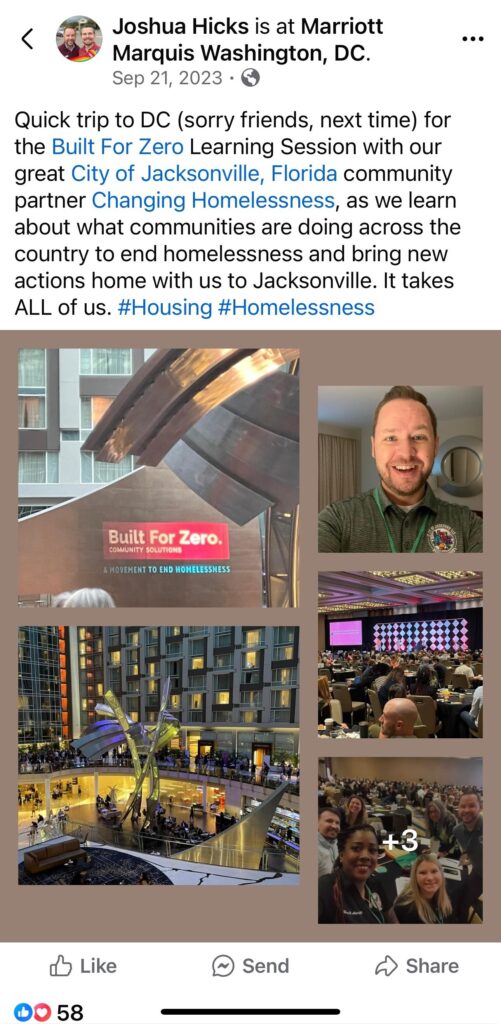
Duval County joined the nonprofit’s national ‘Built for Zero’ campaign in January 2015. By 2017, Duval achieved “quality by-name data” for adults. Meaning, the county “built a comprehensive real-time, by-name list of all single adults experiencing chronic homelessness in the community.”
Nine years after joining and seven years after making two different lists of names, Jacksonville still desperately needs $10 million from the taxpayer plus $3 million from corporations to end homelessness, five years from now.
How can that be?
I know, I spoiled the surprise. Racism.
Community Solutions teaches homelessness is caused by intentional systemic white racism. I wonder if Hicks learned that during his trip.
The group’s website links to a video explaining how and why.
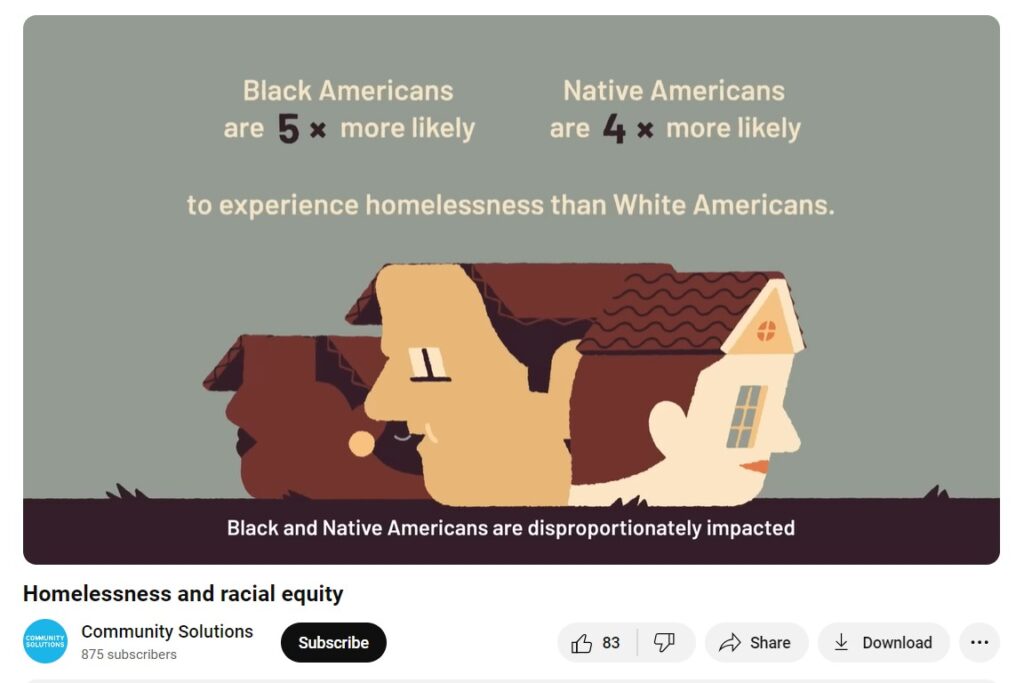
The video’s narrator tells the viewer, Americans purposefully allow black and native Americans to become homeless because, “for generations people of color have been denied access to everything at the heart of a just and fair society. Including a place to call home.” WTF?! It gets worse.
The systems that respond to homelessness often do a better job of supporting people who are white than those who are not,” the soft-spoken narrator said.
The video teaches homelessness is a “mirror,” reflecting our “nation’s living history of racism.” However, once we learn “our decisions created this crisis,” Community Solutions can create a “just and equitable nation,” because the Bill of Rights and Civil Rights Act aren’t a thing, apparently.
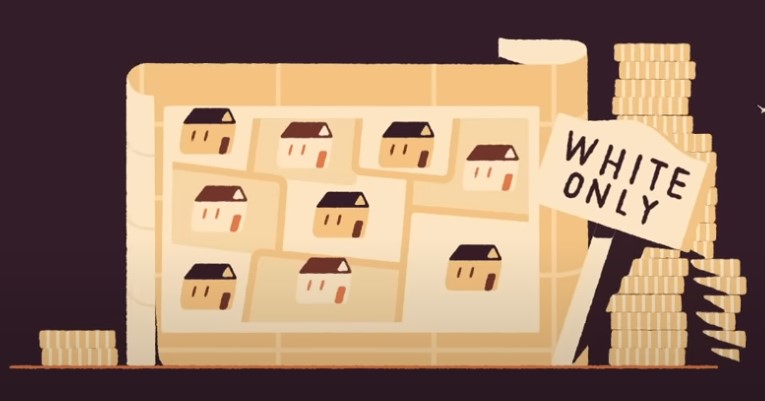
The nonprofit believes the first step to solving homelessness is agreeing on “a shared definition of what we are trying to achieve,” because “the equity of our society is at stake.”
Never forget, those who control the language control the argument. Equity and equality are opposing ideologies. Do not be fooled. Shared definitions and data collection don’t mean anything if the COJ is still dealing with a homelessness crisis.
But are we?
During one of City Council’s special committee meetings on the Jaguars Community Benefits Agreement, an official with the nonprofit Ability Housing presented a document, claiming in 2019; 301 people in Duval County were considered “chronically homeless.” By 2024, that number is down to 121. The agency lists Duval’s 2024 “unhoused population” as 1,209, bumping the city’s homeless population total to 1,330. Chronically homeless” and “unhoused” are two different categories, meaning two different things.
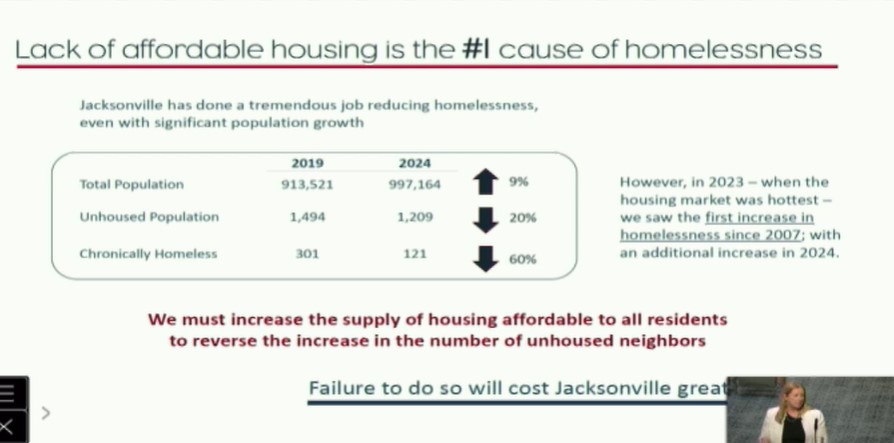
The national average homeless rate is 176 people per 100,000. With an estimated homeless population of 566, Jacksonville’s numbers are below the national average.
The FZH theory prioritizes collecting data on those considered “chronically” homeless. So, if we factor in Ability Housing’s chronically homeless number of 121, Jacksonville’s homeless population drops even further below the national average. But don’t tell the mayor.
Besides political rhetoric, I cannot find any data suggesting racism caused someone to lose their home in Duval County. However, I do recall hearing the Ability Housing lady tell council members homelessness in Jacksonville is simply a housing issue.
“If people can’t afford a place to live, they will become homeless. It is not mental health. It is not poverty. It is not behavioral health challenges. It is not substance use,” she said.” She continued, “The other things may make them more at risk of becoming homeless, but the reason they’re homeless, is because they can’t afford a place to live.” She wrapped up by warning, if we fail to “invest in affordable housing for all our residents,” it will cost a lot in “financial dollars” and “quality of life.”
The CEO of the Sulzbacher Center, Cindy Funkhouser, told a local business journal, “We’ve got to do everything in our power, as a city and as a sector, to try to build affordable housing as quickly as possible because that’s the answer to homelessness.” Funkhouser claims, “The answer to homelessness is not more shelter; the answer is actually building affordable housing.”
And that is the whole point of all the homelessness political theater. Establish and permanently fund Jacksonville’s Homeless Industrial Complex as well as Deegan’s Affordable Housing Syndicate.
Team Deegan does have an excellent excuse to create a homeless plan as well as political scapegoat when it doesn’t work.
Homelessness and the rise of incarceration rates are a direct result of liberals demanding deinstitutionalization back in the 1960s. Mental institutions across the country closed shifting care to local law enforcement, hospital systems and do-gooders willing to take on the work.
As a reaction, the federal government began incentivizing cities to take a “housing first” approach to get people off the streets. The feds want cities to provide permanent “affordable” housing (Permanent Supportive Housing, PSH) and lower eligibility requirements by ignoring criminal history, drug use and lack of employment (low barrier entry).
Funkhouser believes the housing first approach is the “best practice” to solve homelessness verses programs focused on “fixing the person first.” Funkhouser said, “We want to make sure that we’re stabilizing that person and addressing their barriers.”
Team Deegan’s top negotiator Mike Weinstein taught us, barriers are things preventing people from working, like childcare, figuring out what uniform to wear and transportation. City Council gives nonprofits like the Sulzbacher Center and Ability Housing our money to remove those “barriers.” I still have to pay for my own barrier removal, but I am white. So, I’ll remember to check my privilege.
While the need for cheaper low-income housing is axiomatic, lowering safety measures and creating policies ignoring root causes of homelessness only exacerbate the issue.
The state of Florida hasn’t figured that out yet, so it is championing the Fed’s “housing first” approach by recently banning sleeping outside.
Deegan’s homeless plan is to address the so-called “anti-camping” law, which took effect on Oct. 1. The law bans local governments from allowing people to sleep or camp in public places without a permit. It also allows local governments to create homeless villages to prevent tent cities.
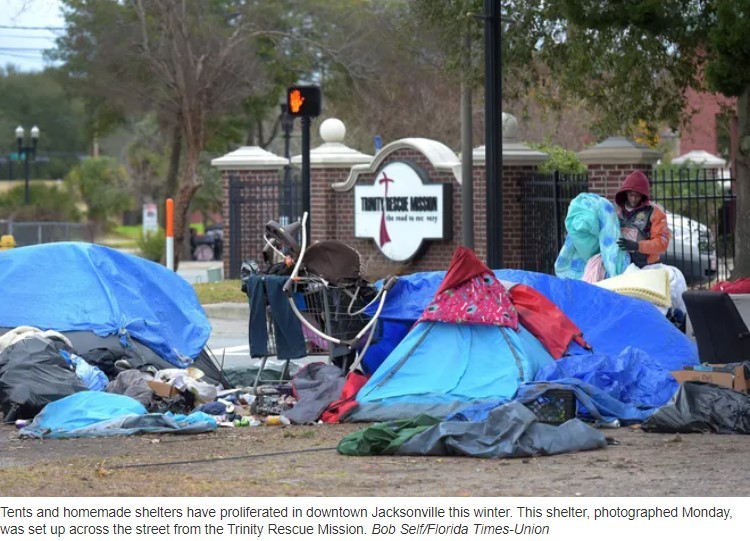
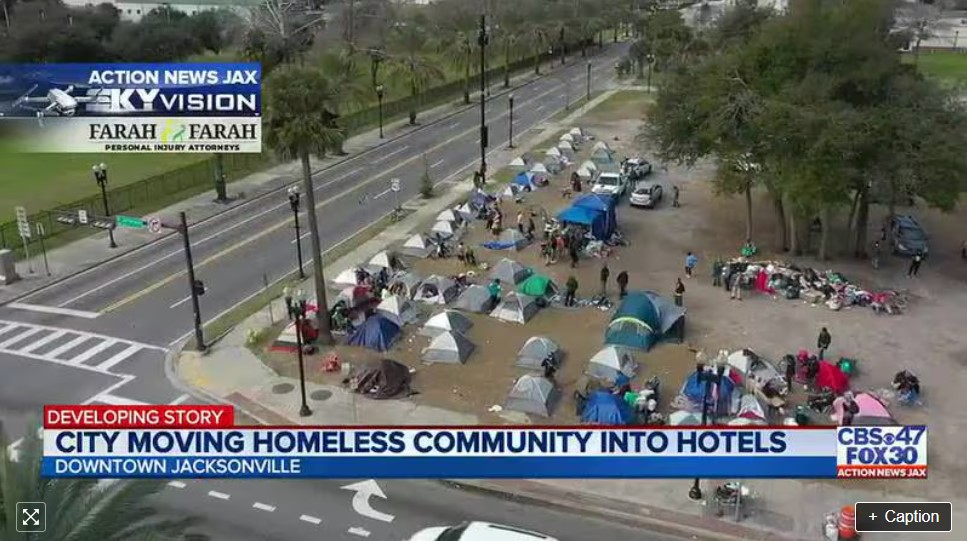
We all agree the Jefferson Street tent city wasn’t a good look for Jacksonville. However, I don’t think we are going to agree with the alternative.
Last year, Deegan commissioned a 21-member working group to come up with a “5-year strategic plan” to comply with the law. The plan’s hardcopy lays out 12 recommendations with dollar amounts.
The mayor wants taxpayers to spend:
$459,917 improving a data collection system (HMIS).
$590,800 on homeless “outreach” teams.
$650,520 on staff members entering available beds into a computer program.
$567,840 on “no wrong door” policy to collect data and “assessment” of individuals.
$1,318,200 so “case managers” can offer “support.”
$50,000 for JSO’s Homeward Bound program.
$447,500 to “monitor” a nonprofit’s housing program and expand a mental health recidivism program.
$1,790,000 to add 136 beds to Duval’s five area shelters.
$4,547,400 to house the homeless in 200 hotel rooms.
$3,218,275 on a 100 “non-congregate low barrier bridge shelter village.”
In all, that’s $9.6 million dollars on housing and more than $3.4 million dollars on administration.
The second most expensive part of the mayor’s plan, Recommendation 9, expands the Sulzbacher Center’s Urban Rest Stop, located behind the jail. The plan calls for spending more than $3.2 million dollars constructing a 100 bed “non-congregate low barrier bridge shelter village.”
In English that means the city would build 100 private “container” or “ModPod” housing units without requiring an “occupancy agreement.” Under the “low barrier” distinction, the intake process is 24/7, people are allowed in drunk, on drugs, with pets and without a background check. The term “bridge” means the shelter “bridges the gap” between homelessness and permanent housing.
If Deegan’s plan becomes a reality, 100 taxpayer funded housing units would be built smack dab in the middle of downtown. The potential homeless village is within walking distance of that apartment complex we watched burn to the ground and now are paying to rebuild, arena, both ball fields and that wicked fancy hotel the Mustache is building across the street.
To be fair the mayor’s plan does state the shelter village will be located “adjacent to the Urban Rest Stop or another location as determined” by the state’s new anti-camping law, HB 1365.
It appears there is another location. Well, two. One is done and the other has been in the works for years.
So it would seem, the Sulzbacher Center wants to get out of the shelter business and into the country’s Homeless Industrial Complex. To do that, the shelter needed room to grow. Back in 2018 the agency teamed up with private investment firm, Vestcor and built a $21 million housing complex for women and children on 44th and Pearl streets. The complex encompasses 70 apartments, 56 “short-term emergency units,” a peds clinic and learning center.
The second step of Sulzbacher’s expansion is a housing complex for homeless men. The $46 million- Sulzbacher Enterprise Village encompasses 17 acres off Walgreen Road in Northwest Jacksonville.
Reportedly, EverBank will buy $31 million worth of low-income housing tax credits and use it to help Sulzbacher fund the village. $15.2 million will come from Duval’s taxpayers. And, even more will come from our pockets via funding provided by local nonprofits and “foundations.” Construction must begin by November and units are required to be move-in ready by September 2025. If COJ misses the deadline, we will owe the government $2 million in federal funds.
Construction of the Enterprise Village will be completed in three phases. The first phase is a $26 million four-story apartment building containing 100 low-income studio apartments and eighty “temporary emergency units.” The second phase, a $10 million jobs training facility. The third, a $10 million on-site manufacturing plant “for the people Sulzbacher serves.”
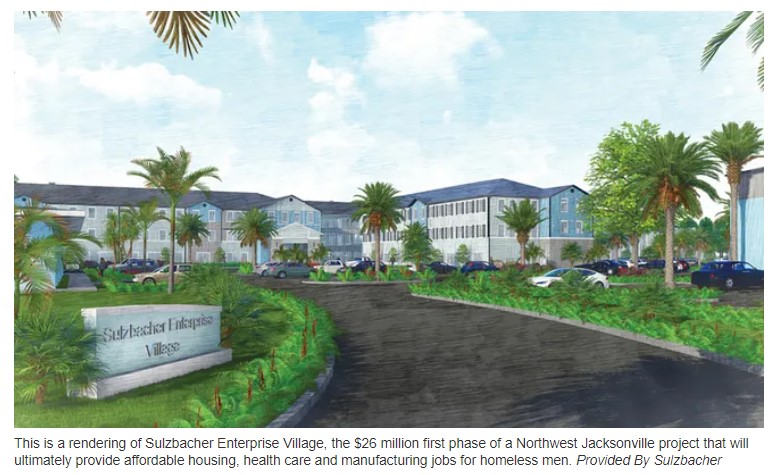
After neighbors found out about plans for the homeless center for men, they voiced concerns fearing a rise in crime and lower property values.
The Sulzbacher CEO doesn’t seem to mind. “People basically say, we don’t want you here, not in my backyard. And it doesn’t just apply to Sulzbacher, it applies to any affordable housing anywhere in the city where people are trying to build it,” Funkhouser said.
So, to extend an olive branch, Funkhouser dispatched City Councilwoman Ju’coby Pittman, (who represented the district at the time) to host a few meetings, shake babies, kiss hands and squash neighbor’s concerns.
In a totally unrelated story, Portland, Oregon, gave $44 million plus $208 million in federal funds to a local nonprofit to build one of these villages next to an established neighborhood. Neighbors say within a year of the village opening, the crime rate doubled. Watch here: https://www.youtube.com/watch?v=g-iJ5TBV4q8. The nonprofit running the village has faced multiple lawsuits accusing organizers of civil rights violations, physical abuse, sexual harassment and theft. The nonprofit is also accused of allegedly selling drugs to the homeless as well as making unwanted sexual advances. Don’t worry, nothing like that has ever happened in Jacksonville. Well, except for that one time, a JHA employee got caught allegedly threatening to evict tenants who refused to have sex with him. He is currently serving a 15-year sentence.
https://eyeonjacksonville.com/corruption-collusion-the-cba-what-the-lerp-is-going-on/.
The good news for neighbors of the Sulzbacher Enterprise Village, the organization says it isn’t a homeless shelter for men, despite the campus’ 80 “temporary emergency units,” its designation as the men’s campus, and homeless individuals being bussed from downtown… its totally not a men’s homeless shelter. The Urban Rest Stop, next to the jail, will continue being the homeless center for the city. They just won’t call it that either.
Not that it matters, Seattle already tried a $10 million 5-year plan to end homelessness called “Partnership for Zero.” It didn’t work and the campaign ended after running out of money in two years. But that’s Seattle. It is really far away. And the funding was private. FZH will totally work in Jacksonville because taxpayers are footing the bill.
A 21-member committee, commissioned by the mayor, put together Jacksonville’s “five-year strategic plan.” COJ’s Director of Strategic Partnerships, Tracye Polson and the mayor’s Affordable Housing Director Joshua Hicks are the co-leads of the “Mayor’s Homelessness Work Group.”
A few red flags. Everyone serving on the committee is already a “stakeholder” in the homelessness business. The same people/nonprofits tasked and paid by taxpayers to feed and house the homeless are the same ones asking elected representatives for more of our money, promising to fix the problem they currently cannot manage. That is another one of those things you are not supposed to notice. As well as former JHA CEO Vanessa Dunn serving on the committee. (More on Dunn here: https://eyeonjacksonville.com/corruption-collusion-the-cba-what-the-lerp-is-going-on/.)
Full committee report here:
The point being, all of this is about collecting information and using it to siphon millions from taxpayers so politicians and nonprofits can pretend to end homelessness.
The government’s “housing first” approach is a proven failure. According to the Heritage Foundation, cities with an increased supply of “permanent supportive housing (PSH),” units saw homelessness rates rise. The offer naturally incentivizes people to migrate to the area. People also purposefully stay homeless longer to remain eligible for free housing. Unless individuals are forced to move, more housing is needed.
The approach is also incredibly expensive. A “housing first” project in Los Angeles reportedly cost taxpayers $690,000 per unit! The American Enterprise Institute estimates it takes “10 permanent supportive housing units to reduce homelessness by just one person.”
Homelessness is a result of something else going on in a person’s life. Poor mental health, a lack of family structure/support, lack of religion, unemployment and addiction are the true causes of an individual ending up on the streets. Not a lack of housing. And definitely not racism.
A “family first” approach is the only avenue offering an opportunity for success. Strong social connections with family, friends and faith are the most important aspects in predicting a person’s chance of falling into poverty and ultimately homelessness.
All programs designed at reducing homelessness must be tied to a measurable improved outcome of the individual in order for positive change. Mental health, addiction and an individual’s overall social well-being must be addressed before taxpayers provide “permanent supportive housing.”
The good news for taxpayers in Duval County is the Republican majority City Council put a stop to funding the mayor’s plan… for now. $10 million in funding was up for a vote during the last City Council meeting of September. Instead, council members approved $2.5 million to create a seven-member homeless dispatch team within the fire and rescue department. Half of the money is for salaries and equipment the rest is for “authorized plan expenditures.”
After council members balked at funding the mayor’s “Homelessness Plan to Address the Passage of State Law #1365,” it was back to the drawing board.
This week City Council decided to allow Team Deegan more time to come up with another “5-year strategic plan to end homelessness.” The mayor’s team seriously asked council members for another year to finish a plan and an additional year to “review it.” Council gave them until March 31. Council members voiced concerns not enough was being done to comply with the new anti-camping law by Jan. 1. So, the mayor’s team must come up with an “annual plan” for compliance. That plan is also due in March.
The good news for those waiting around for the next six months while highly educated and highly paid people try to figure out how to do their job… Homelessness in the United States is already “rare” and “brief.” Out of 350 million people, it is estimated 650,000 are homeless.
Those numbers prove capitalism has lifted more people out of poverty than any other government system created by man. They also prove Americans are the most generous people throughout the world.
Homelessness will always be an unfortunate reality in the world we live. No matter what we do or how much we spend, there will always be those who end up on the streets. We must always show compassion to those facing difficulty, while recognizing personal responsibility cannot be taught via free housing.
Homelessness is not a zero-sum game. It is a choice.









